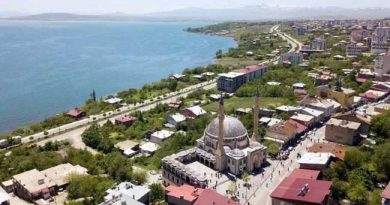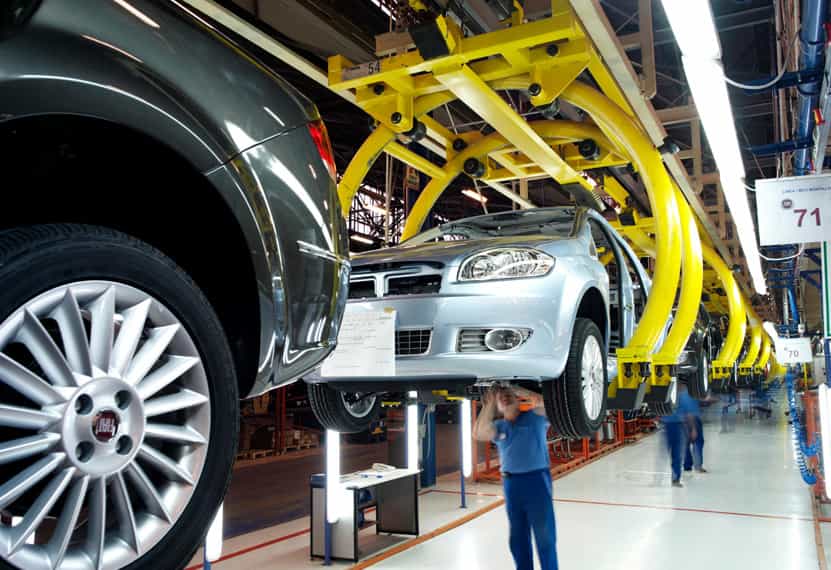Populist Spending Not in Question Ahead of Elections
 Although a common occurrence ahead of elections in Turkey, populist spending is not the case this time as the June 12 general elections draw near. The economic indicators ahead of the elections are all positive, as are comments that have been made by international financial institutions agencies.
Although a common occurrence ahead of elections in Turkey, populist spending is not the case this time as the June 12 general elections draw near. The economic indicators ahead of the elections are all positive, as are comments that have been made by international financial institutions agencies.
Unemployment fell to 11 percent, and well over 1 million new jobs were created in 2010. Such efforts were also appraised during a conference last Wednesday in İstanbul by the International Monetary Fund’s (IMF) Turkey director, Mark Lewis, who said that he expects the unemployment rate to fall further in conjunction with the growing economy.
The statement released by the Turkish Statistics Institute (TurkStat) this week showed that Turkey’s economy grew 8.9 percent in 2010. This represents the best growth performance among the European countries and third best among Organization for Economic Cooperation and Development (OECD) countries. The annualized inflation rate, also announced this week, represents a 41-year low at 3.99 percent. Another positive remark came from the World Bank this week. Ulrich Zachau, the bank’s Turkey director, said the reforms carried out in Turkey since 2001 — fiscal consolidation, modern debt management, inflation targeting, a floating exchange rate regime and improvements in the banking supervision system, together with a fully independent central bank — had all contributed to these positive results.
Turkey, for perhaps the first time in the history of its elections, is heading toward the general elections with no government attempts at populist spending. The claim is fully supported by Professor Mustafa Acar, the dean of Kırıkkale University’s faculty of economics. Referring to the sound economic indicators, Acar says that with such strong fundamentals, the ruling party has a wide comfort zone, perhaps for the first time in the history of the republic. “The macroeconomic indicators are extremely positive; it is the third fastest growing economy in the world, for the first time in almost 30 years the budget has seen a surplus [consecutively in January and February] and thus there is no need for the government to issue bonds. This fact in turn does not necessitate an election economy and a consequent tax hike after the elections. In this sense the govern-ment is pretty comfortable,” Acar said.
Also in an earlier phone interview with Sunday’s Zaman, Professor Metin Ercan from the department of management at Boğaziçi University put forward the options the current government has in hand heading into the elections. “Election spending is a sign of the government running out of options and, since the current government does not face such a situation, we do not observe such populist spending, nor do we feel it because it has enough room to maneuver and the economy is performing better than in previous years,” Ercan said.
The picture is not all rosy for the economy, however. The current account deficit (CAD) and the higher-than-normal unemployment rate are sources of concern. However, Acar thinks in line with Lewis when it comes to unemployment, saying that if the economy keeps expanding as it is now, then unemployment will be brought down to reasonable levels. The CAD reflects Turkey’s demand for energy and, according to Acar, Turkey must address the issue immediately, without further delay. “Turkey’s CAD was around $50 billion [in 2010], and almost $35 billion of it was energy spending,” he says.
The types and forms of populist spending in Turkey before elections in the past varied. Before the massive privatization campaign, State Economic Enterprises (KİTs) made up a large portion of Turkey’s economy, and Acar notes that past governments controlled the economy through these KİTs. For example, he says the necessary price increases were held off until after the elections, which led to suppressed inflation. “Also in the past, Turkey experienced uncontrolled government spending on several occasions in the form of incentives and subsidies before the elections. All such policies resulted in tax hikes, public borrowing that caused the internal and external debt to rise and money printing, which fuels inflation after the honeymoon is over,” Acar explains.
Referring to a common expression stating that even six months is a long time for Turkey when it comes to planning ahead, Acar says that now is the time to make plans for 10, 20 and even 50 years from now. “That expression is the product of unstable times in Turkey. Now, the conjuncture and circumstances make it necessary to expand our horizons. Finally, after a very long time, the economic environment is in our favor: The government does not need to issue bonds, the inflation and interests rates are low and, more importantly, the economy is integrated with global markets. The only negative development is the recent upheaval in the Arab world and the resulting oil price hikes in world markets; yet, I believe that once the situation returns to normal, it will be all smooth sailing for Turkey,” he says. “After the elections, with a modern constitution and a fully functioning democracy, I believe the economy will perform even better than it does now,” he concludes.
10 April 2011
SOURCE: TODAYS ZAMAN




